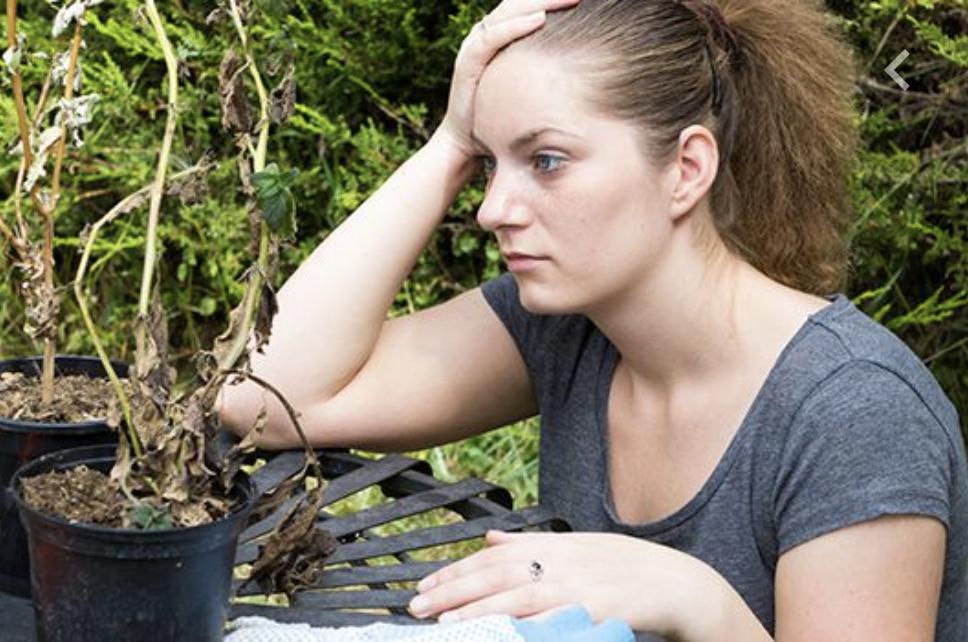I am a gardener, so I know suffering.
I am not sure who said, “nature abhors a garden” (it has been attributed to author Michael Pollan). I don’t know about that, but I do know that “nature abhors MY garden.”
By midsummer, I wonder if I should put my suffering plants out of their misery. The hot, humid summer has reduced my hydrangeas to wilted leaves, dried flower heads and rust spots.
My lawn has dried up, some annuals have browned and even one rosebush died. I don’t blame them, I wouldn’t want to stay out in this heat either.
Even the blackbirds have tired of taunting me and headed to more productive farmland.
It is just me and my spent flower heads, tired bushes, wilting hydrangea, dried up daylilies, brown loosestrife, slug-eaten hosta, suffering annuals, powdery mildew-stained coreopsis and other unhappy plants.
My underground sprinkler system couldn’t keep up while I was away on vacation and some of my thirsty plants, like astilbe, just dried up.
My pots are annoyed as well, the caladiums, used to Florida weather, appear to believe that this climate is worse.
To be fair, some plants are doing well, crab grass, wild violets, wild grape and other weeds appear to be thriving.
Autumn gardeners may be enjoying the grasses, sedum, mums, and asters. But my garden lacks the sun and space necessary for those plants.
So being a gardener, I know that I must continue to suffer. I go out in the early morning, dutifully weeding, watering, snipping off dead flower heads, removing dead leaves and pretending that my garden will recover.
No, we gardeners cannot give up.
After all, there is always next spring.
Angela Rieck, a Caroline County native, received her PhD in Mathematical Psychology from the University of Maryland and worked as a scientist at Bell Labs, and other high-tech companies in New Jersey before retiring as a corporate executive. Angela and her dogs divide their time between St Michaels and Key West Florida. Her daughter lives and works in New York City.




MaryLou Watson says
The hardest part is determining which plants can truly survive such harsh sun and heat. After discovering this, we are then cursed by the unrelenting rain that we had last summer and for which the plants we’ve identified for the heat, cannot endure the continual deluge of rain! I am grateful for the abilities of my Winterthur Viburnums and how facile they are with whatever weather! I am also grateful to replace whatever plant cannot survive with a new lot – ever re-freshening my landscape! But I long for stability and would prefer to replace plants on a much lesser scale.
Ezra Finkin says
I know this seems totally weird, but we planted some succulents two springs ago. They went dormant in fall, survived the winter and are now loving this crazy hot temperature.